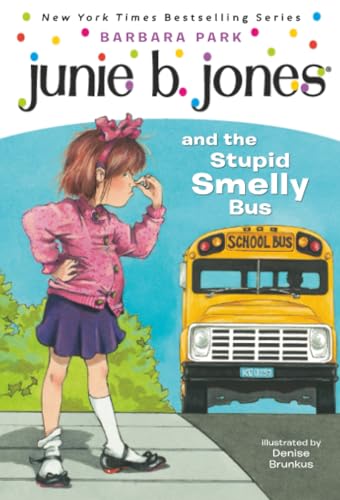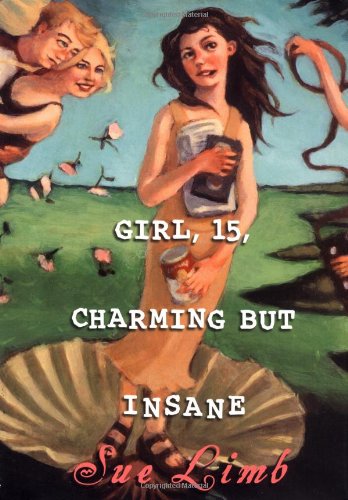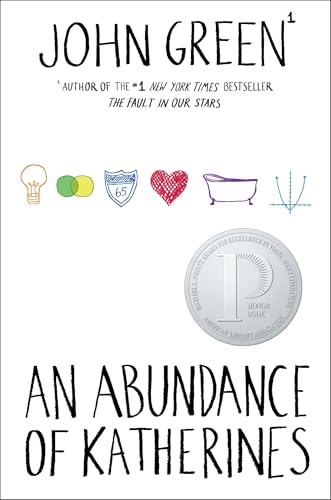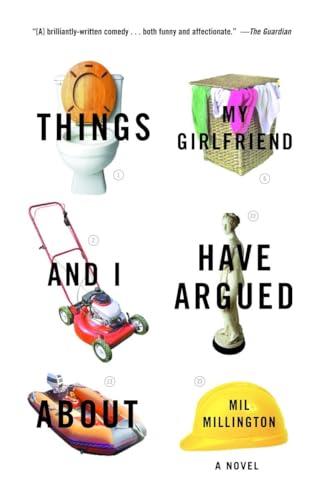Recently, my seven-year-old approached me with this statement: “I know why jockeys get the trophies in horse races,” she said. “Why?” I asked. “Because jockeys make the horses go faster with the whacker sticks. They whack the horses until they go fast enough to win.” Yes, whacker sticks.
An adult would have searched for the correct word for whacker stick (which I believe is crop), but a kid plows forward with the confidence and creativity of youth and the belief that she will be understood. Children see language as pliable, moldable, and ultimately useable. It is only later that we will stifle their confidence and creativity with rules and structure and grammar.
And that vision of communication exemplifies why I love Junie B. Jones. She captures this elusive stage of childhood and reflects it back to the reader. And that is just part of what makes her so special. So I offer six reasons why the series — now twenty-six books strong — rocks. Illustrated with examples from the latest book, Junie B., First Grader: Aloha-ha-ha.
- It’s been said that Junie B. teaches children incorrect English. If books had that much influence over children’s speech patterns, then the Brer Rabbit stories I read my kids last week would surely have come out by now. Yet they have never uttered a “b’rer” in conversation, nor has the term “tar baby” come up. (If only the same could be said for the Governor of Massachusetts.) Junie B. just expresses herself as naturally and unselfconsciously as any first graders I’ve known.
I threw out my arms real thrilled. And I flinged myself way high in the air.
“I can’t wait, Mr. Scary! I can’t wait! I can’t wait!” I said. Mr. Scary grabbed my arms. And he kept me from flinging.
- If Junie B. doesn’t teach children the correct way to speak, Barbara Park does teach them the correct way to write. My daughter’s third grade teacher complimented my daughter’s writing by telling me what a wonderful voice she expressed in her writing. She informed me that she could help her writing structure, but finding a voice in writing was harder to teach. Barbara Park does that — by example — in the Junie B. books. We can tell that we are dealing with a first grader when we read the lines. We can hear this child, and it’s a great lesson for kids in conveying a character or capturing a voice in their own writing.
I bounced up and down at that exciting idea. “That sounds like a D-E-E-L!” I said.
- These are books written for kids with a character they can understand. Everyone knows a kid like Junie B. — or is a kid like Junie B. Kids will cut their own hair. They get little kid crushes. They do the wrong things sometimes. Seeing someone else do these things is reassuring to kids that they are not alone and reassuring to parents that their kids are not the only rambunctious ones.
When teachers don’t look, you have to stand up and shout. Or else how are they supposed to notice you?
I stood up and shouted..
- Barbara Park treats the adults in her books like real people. Sometimes they are supportive and kind, but sometimes they are mad or just annoyed. Sometimes they don’t even know the right thing to do. When Junie B. gets stuck in the parrot swim ring she insisted on buying, her mom says she will have to cut it off.
“For heaven’s sake! What kind of mother would cut a little girl’s parrot?” said the grandpa.
“I don’t know, Ed,” said the grandma. “But it sure don’t seem right.”
Mother stood there kind of frozen.
Then she and Daddy picked up our pool towels. And we moved to different lounge chairs.
After that Mother sat back down again. And she said she wouldn’t get the scissors.
- Barbara Park understands that if the parents are entertained, they’ll read with (or to) their kids. A lot of what is in the Junie B. books is funnier to parents than it is to the kids. I mean, the kids think it is funny. But the parents really get the joke. It’s the Sesame Street idea of programming: Keep something in there for the grown-ups and everyone is happy. You’ll see this trend in the kids’ movies and better cartoons of the last decade as well, where many of the jokes involve cultural references intended for older viewers. Like this passage at the security at the airport:
Then a lady pulled us out of the line.
And she made us hold out our arms.
And she waved a giant wand all around ourselves.
I clapped very thrilled.
“Hey! This is just like America’s Most Wanted!” I said.
The lady said this was not a joke, little miss.
I stopped clapping.
The airport does not have a good sense of humor.
- Kids know that the creative language and grammar is part of the joke. I found that when my first daughter was old enough to read Junie B. to me, she sometimes corrected the grammar and words as she was reading. She couldn’t help it. She had already listened to seven years of the word ran, so Junie B’s use of runned wasn’t going to change what she knew. But more significantly, she knew that this is how kids talk. Just this minute, my seven-year-old told me Junie B. was funny because she uses the wrong words. And — also true to what I was saying — her seven-year-old way of telling me was disjointed and kind of funny, but I couldn’t get her words down accurately enough to convey it here. The fact that Barbara Park can get those words — the true spirit of how children communicate — is amazing. Plus also (that’s a Junie B.), kids adopt odd strings of parental expressions, and when they come back from a child’s mouth, it’s funny. And it’s real.
“How many minutes is shortly?” I asked. “Is it one minute or eight minutes or eleven minutes? On account of it it’s one minute, I can wait, probably. But eleven minutes would be out of the question.”
Most importantly, Junie B. books make kids want to read more. And really, when it comes right down to it, isn’t that what it is all about? Reading for fun. Growing up, there will be plenty of time for grammar, structure, and the correct words. Right now, kids can’t wait to see what Junie B. will do next. And you know what? Neither can I.
























1 comment:
This just came up with a friend of mine this weekend, Pam. She was overtly NOT a fan of the books. I uttered a defense, but it was weak, because I haven't read the books yet. Your post will help me in the future, to articulate why I will be encouraging my daughter to read Junie B. Jones. Thanks!
Post a Comment